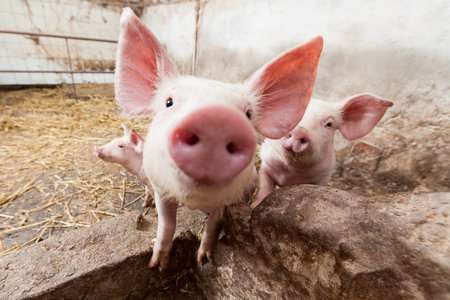Pork industry reps highlight the strength of the program
By Jennifer Jackson
Pork producers will soon be supplying markets with recognized quality Canadian pork, thanks to the Canadian Pork Excellence program. Program testing begins in January for 75 Canadian producers.
“The old program has been around since 1988, built for a different time and era,” said Harvey Wagner, manager of producer services with The Saskatchewan Pork Development Board, in a Dec. 13 podcast. “It’s important (for) the industry to update (the program), bring in new understandings, and revamp the program to adjust to today’s realities.”
The test program is based on three main components – the PigSafe program to represent food safety techniques, the PigCare program for the welfare of the pigs, and the PigTrace program for product traceability. The program will eventually include further biosecurity measures, the new Code of Practice, and other certification programs based on specific customer demands and markets.
We are going to “update, refresh, (and make the program) a little more practical for farms to use – hopefully to make it a little simpler.”
The program is expected to tend to a wide variety of producers including those that ship to federal plants, whose product is exported or used domestically, and also those that export live hogs, according to Wagner.

The Canadian Pork Excellence program is about providing “assurance for consumers whether they are in Canada or overseas,” said Wagner. The program will also better assure buyers of breeding stock, as they will know how the hogs were raised.
The Canadian Pork Council (CPC) has been working on the program for two years. “We are now at the point where we have the program (ready), the manual (for farmers) is put together, and now we have a pilot program” to test, said Wagner.
According to a Dec. 13 CPC update, “the intent (of the testing) is to ensure that the updated program meets its objectives:
- Efficient on-farm validation for both the producer and validator.
- Streamlined format that provides transparency of what is being done on-farm and areas of improvement through corrective actions.
- Platform to provide value-added programs for producers such as Ractopamine-Free Pork Certification, Group Sow Housing Certification, etc.”
According to Wagner, the farms testing the program will include a wide array of operation types.
We will test a “complete range of farms, whether its farms that have bedded facilities, fully slatted facilities, loose housing stalls, small farms, large farms – just any combination we can try and get to see how the program will work” in differing environments, he said.
In the spring, these farms will be validated. Participating farmers will have the opportunity to provide any positive or negative feedback on the program. The CPC will use these findings to make adjustments as needed.
The CPC aims to implement the Canadian Pork Excellence program in Jan. 2018, and have all farms involved in the program by Jan. 2021.
“The objective of (updating the program is) to ensure that the end result is an updated, streamlined program that supports the marketing of Canadian pork and demonstrates to Canadians all of the great work that Canadian Producers do in providing care for their pigs and producing safe, high-quality wholesome Pork,” the update said.
For more information on the program and update, visit the CPC website.
Click here to see more...